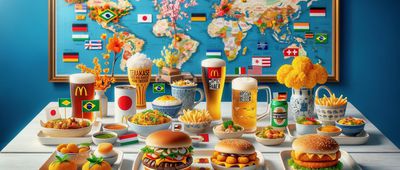HEALTHY CHOICES
Congratulations, you just found out you're expecting. Now you have free reign to eat for two, right? Wrong. Although it's easy to let nutrition fly out the window when you're pregnant and hungry, experts say you need to add only about 300 calories a day during the second and third trimesters. Fortunately, these extra calories won't stress your grocery budget. Moreover, sticking with a balanced, healthy diet can mitigate unfortunate pregnancy side effects, such as heartburn and morning sickness.



















